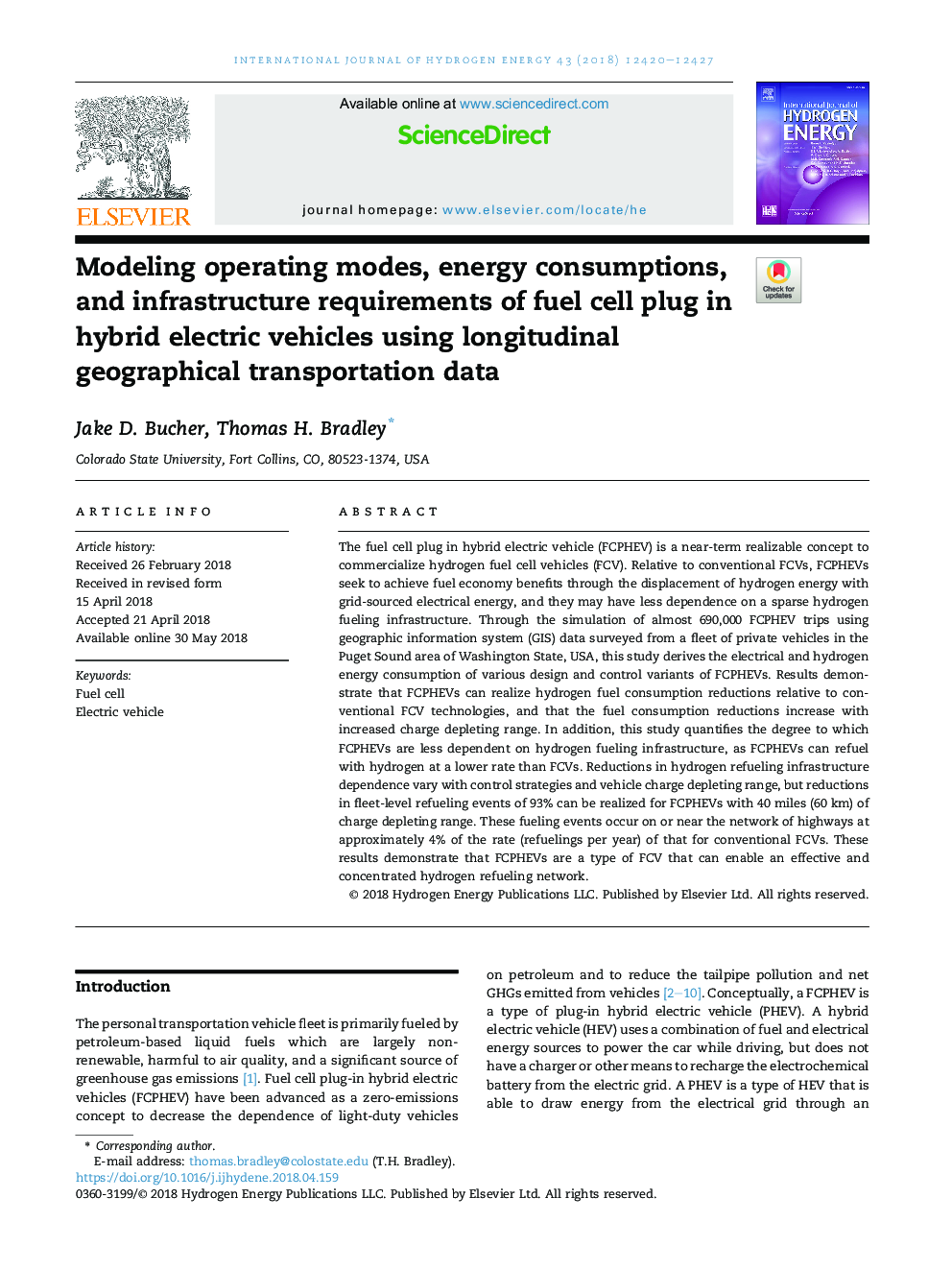| Article ID | Journal | Published Year | Pages | File Type |
|---|---|---|---|---|
| 7705641 | International Journal of Hydrogen Energy | 2018 | 8 Pages |
Abstract
The fuel cell plug in hybrid electric vehicle (FCPHEV) is a near-term realizable concept to commercialize hydrogen fuel cell vehicles (FCV). Relative to conventional FCVs, FCPHEVs seek to achieve fuel economy benefits through the displacement of hydrogen energy with grid-sourced electrical energy, and they may have less dependence on a sparse hydrogen fueling infrastructure. Through the simulation of almost 690,000 FCPHEV trips using geographic information system (GIS) data surveyed from a fleet of private vehicles in the Puget Sound area of Washington State, USA, this study derives the electrical and hydrogen energy consumption of various design and control variants of FCPHEVs. Results demonstrate that FCPHEVs can realize hydrogen fuel consumption reductions relative to conventional FCV technologies, and that the fuel consumption reductions increase with increased charge depleting range. In addition, this study quantifies the degree to which FCPHEVs are less dependent on hydrogen fueling infrastructure, as FCPHEVs can refuel with hydrogen at a lower rate than FCVs. Reductions in hydrogen refueling infrastructure dependence vary with control strategies and vehicle charge depleting range, but reductions in fleet-level refueling events of 93% can be realized for FCPHEVs with 40 miles (60Â km) of charge depleting range. These fueling events occur on or near the network of highways at approximately 4% of the rate (refuelings per year) of that for conventional FCVs. These results demonstrate that FCPHEVs are a type of FCV that can enable an effective and concentrated hydrogen refueling network.
Keywords
Related Topics
Physical Sciences and Engineering
Chemistry
Electrochemistry
Authors
Jake D. Bucher, Thomas H. Bradley,
